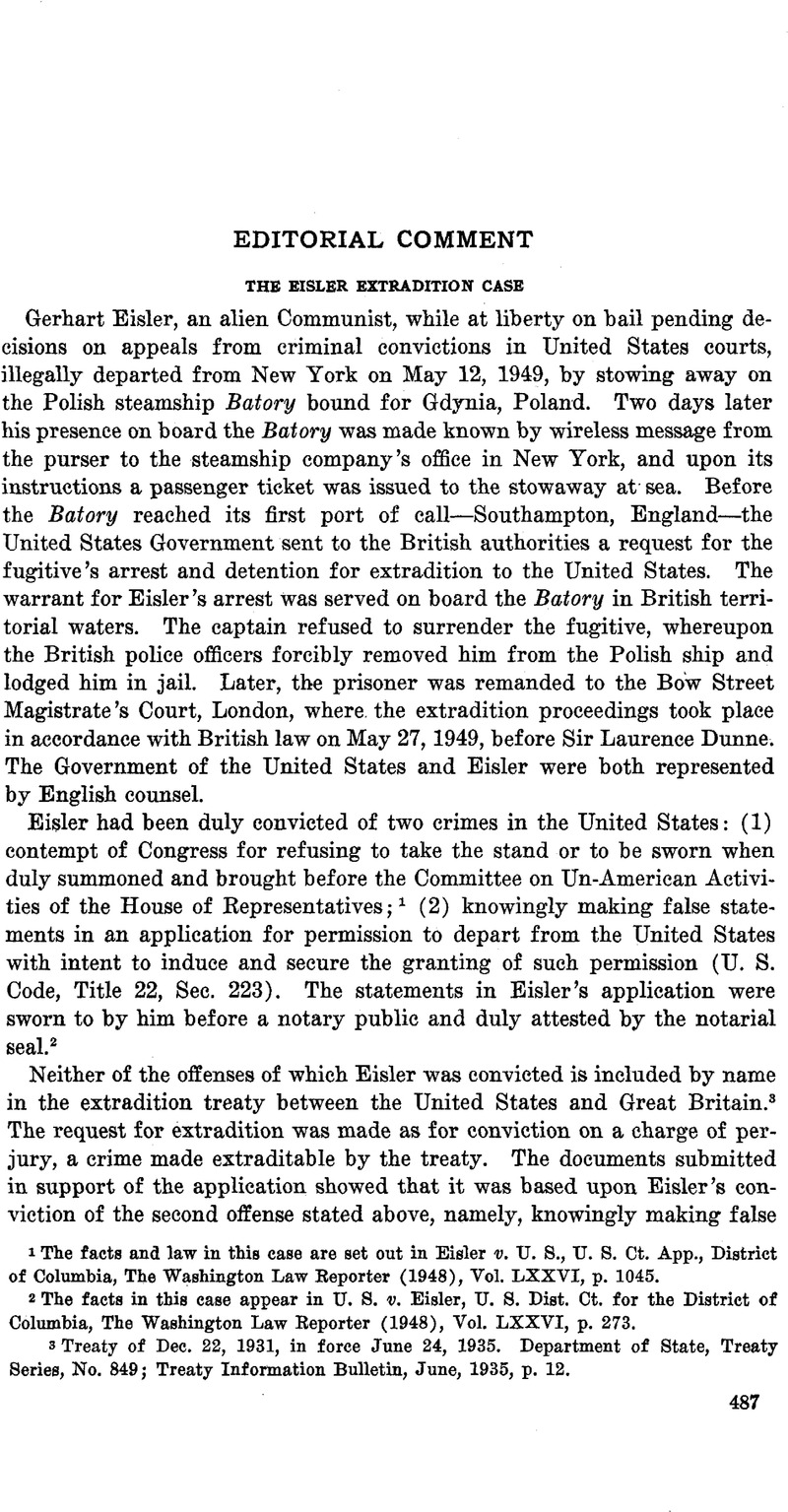Article contents
The Eisler Extradition Case
Published online by Cambridge University Press: 20 April 2017
Abstract

- Type
- Editorial Comment
- Information
- Copyright
- Copyright © American Society of International Law 1949
References
page 487 note 1 The facts and law in this case are set out in Eisler v. U. S., U. S. Ct. App., District of Columbia, The Washington Law Reporter (1948), Vol. LXXVI, p. 1045.
page 487 note 2 The facts in this case appear in U. S. v. Eisler, U. S. Dist. Ct. for the District of Columbia, The Washington Law Reporter (1948), Vol. LXXVI, p. 273.
page 487 note 3 Treaty of Dec. 22, 1931, in force June 24, 1935. Department of State, Treaty Series, No. 849; Treaty Information Bulletin, June, 1935, p. 12.
page 488 note 4 The Times (London), May 28, 1949 (air edition), p. 2.
page 488 note 5 Ibid.
page 489 note 6 Wright v. Henkel, 190 U. S. 40, 57. See also precedents reported in Hackworth, Digest of International Law, Vol. IV, § 315.
page 490 note 7 Hackworth, Digest of International Law, Vol. IV, p. 111.
page 490 note 8 Publications of the League of Nations, V. Legal, 1926, v. 8, p. 3 ; Am. Jour. Int. Law, Spec. Supp. (1926), Vol. 20, p. 253.
page 490 note 9 The penalty for perjury and kindred offenses under the British Perjury Act is seven years penal servitude or imprisonment with or without hard labor for not exceeding two years or a fine, or to both such penal servitude or imprisonment and fine. Under the United States Code, perjury may be punished by imprisonment for not more than five years and a fine of not more than $2,000; knowingly making false statements in an application for permission to depart from the United States is punishable by imprisonment for not more than twenty years or a fine of not more than $10,000, or both. Probably the greater penalty attaching to the last-mentioned offense was taken into consideration in determining under which section of the United States Code Eisler was to be indicted.
page 491 note 10 Am. Jour. Int. Law, Supplement, Vol. 29 (1935), pp. 15, 21, 75.
- 2
- Cited by


